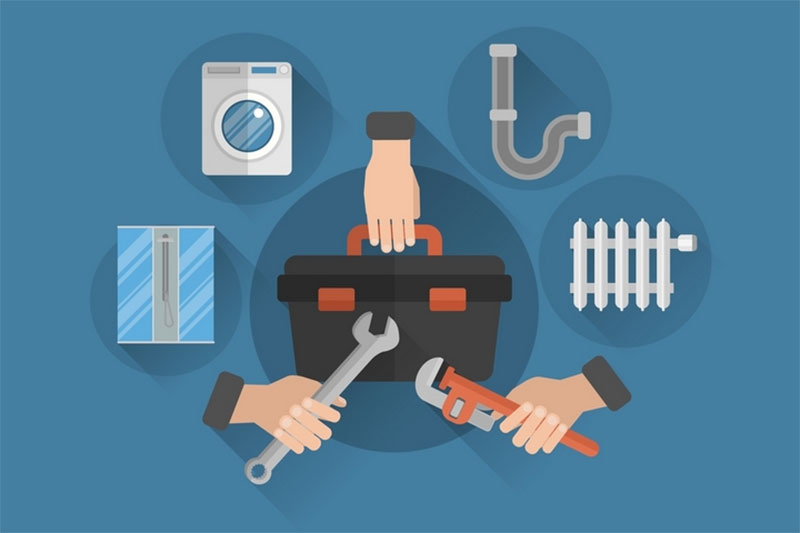Introduction
The winter season offers picturesque landscapes draped in snow and cozy evenings by the fireplace. Nonetheless, it introduces distinctive plumbing difficulties for homeowners, especially those residing in older properties. The colder temperatures can stress your plumbing system, leading to problems such as frozen pipes, leaks, and blocked drains. This article will explore common winter plumbing challenges in older homes and provide practical solutions.
Frozen Pipes
Due to inadequate insulation and outdated plumbing systems, older homes are more vulnerable to frozen pipes. Water within your pipes can freeze when temperatures drop, potentially causing bursting and home flooding. To prevent frozen pipes, consider the following precautions:
- Add insulation to your pipes: Improve heat retention and guard against freezing by insulating vulnerable pipes in areas without heating, such as basements, attics, and crawl spaces.
- Maintain indoor heat: Keep a consistent indoor temperature, even when you’re away, using a programmable thermostat to minimize the risk of freezing.
- Allow faucets to drip: Let faucets drip slowly during cold spells to keep water moving, reducing the risk of freezing. If you’re unsure how to insulate or thaw pipes safely, it’s advisable to call a licensed plumber, especially in an emergency.
Leaks and Drips
Older homes often have worn-out plumbing fixtures, leading to leaks and drips during winter. These issues may seem minor but can cause significant damage over time. To address leaks and drips:
- Frequently examine plumbing fixtures for indications of leaks, like the presence of water stains or mold.
- Replace worn-out or damaged washers, gaskets, and seals.
- Consider upgrading to water-efficient fixtures to save on utility bills.
Blocked Drains
Blocked drains can be a common problem in older homes, especially during winter when cooking and entertaining are more frequent. To prevent or address blocked drains:
- Be cautious when disposing of items down the drain. Avoid pouring grease, food remnants, and non-flushable items like wipes down the sink or toilet.
- Employ a drain strainer to trap debris before it enters the drain. In the event of a clogged drain, attempt to remove the blockage using a plunger or a drain snake. If these methods fail, consider calling an emergency plumber.
Inefficient Water Heaters
Older homes may have outdated water heaters that struggle to provide enough hot water, especially during winter. To address this issue:
- Consider transitioning to a water heater with higher energy efficiency, such as a tankless model that delivers hot water instantly on demand.
- To minimize heat loss, insulate your water heater and the hot water pipes connected to it.
Insufficient Insulation
In many cases, older homes often suffer from inadequate insulation, resulting in heat loss and higher energy bills during the winter months. To improve insulation:
- Check your home for openings or air leaks, especially around doors and windows. Seal them securely with weatherstripping or caulk.
- Consider adding more insulation in the attic, walls, and basement to maintain a consistent indoor temperature.
- Enhance your home’s insulation and reduce heat loss by replacing windows and doors with energy-efficient alternatives
Old Plumbing Materials
Many older homes have plumbing systems made from outdated materials, such as galvanized steel or lead pipes, which can corrode or leach harmful substances into your water. To tackle this concern:
- Have a licensed plumber assess the condition of your plumbing system. If necessary, consider repiping with modern materials like copper or PEX.
- Improve your water quality and eliminate impurities from outdated plumbing materials by installing a comprehensive home water filtration system.
Boiler and Radiator Maintenance
Older homes may rely on boilers and radiators for heating, which require regular maintenance to function efficiently. To maintain peak performance throughout the winter season, consider the following steps:
- Arrange for an annual inspection and tune-up of your boiler to identify and resolve any potential issues before they escalate into major problems.
- Bleed your radiators to remove air pockets, ensuring even and effective heating.
- Explore the possibility of enhancing energy efficiency and reducing heating expenses by transitioning to a more efficient heating system, such as a contemporary boiler or forced-air heating.
Conclusion
Winter plumbing challenges in older homes can be a source of concern. Still, with proactive maintenance and strategic upgrades, you can enjoy a warm and comfortable winter season without worrying about plumbing issues. Monitor frozen pipes, leaks, blocked drains, insufficient insulation, outdated plumbing materials, and heating system maintenance. Don’t hesitate to call a licensed plumber for assistance, especially in emergencies, to address these issues and ensure a cozy and trouble-free winter in your cherished older home.




